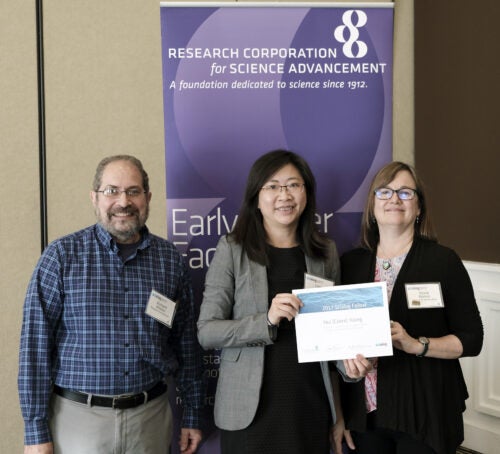
Claire Xiong, assistant professor in the Micron School of Materials Science and Engineering, was named a 2017 Scialog Fellow for her research on sustainable energy innovation. Scialog, a corporation that supports research for scientific advancement, sponsors fellows who collaborate on high-risk discovery research on untested ideas, identify bottlenecks and encourage innovative approaches.
“I am fascinated by the imperfections in electrode materials which can lead to enhanced electrochemical and structural properties and faster movement of ions within electrode materials, leading to better energy, power and battery life,” said Xiong.
Xiong’s research on how to create stable renewable energy grids, especially wind and solar power, has global implications. Clean power can have positive environmental and economic impact; however, relying on these intermittent sources of energy also can be problematic – for example, in instances of cloud cover or low wind during peak usage times. Traditionally, clean power sources are backed up with more stable fossil-fuel generators that provide power during peak energy usage. Going forward, innovations in battery technology can provide a more efficient source of energy storage.
Rechargeable batteries – e.g., lithium-ion or sodium-ion batteries – also can be used as a stable back up for energy generated by wind turbines and solar panels.
Although today’s rechargeable lithium-ion battery technology has transformed the industry of portable electronics (cell phones, laptop computers, etc.), meeting grid storage application presents greater challenges. Meeting these challenges requires innovative approaches and transformative ideas to design, discover and optimize new materials.
“The potential for large scale rechargeable battery use is promising,” Xiong said. “Combined with other sources of energy, rechargeable batteries could provide power in areas devastated by storms. They could also be used to further stabilize the use of wind and solar energy.”